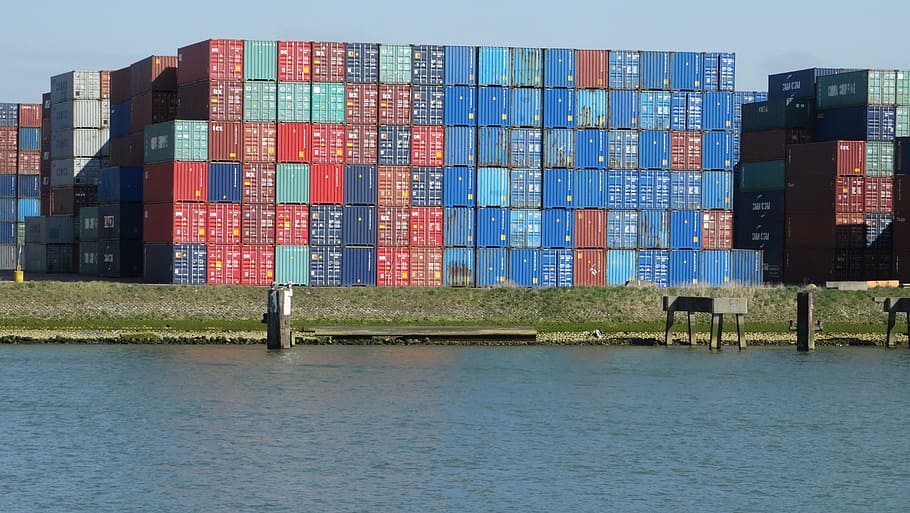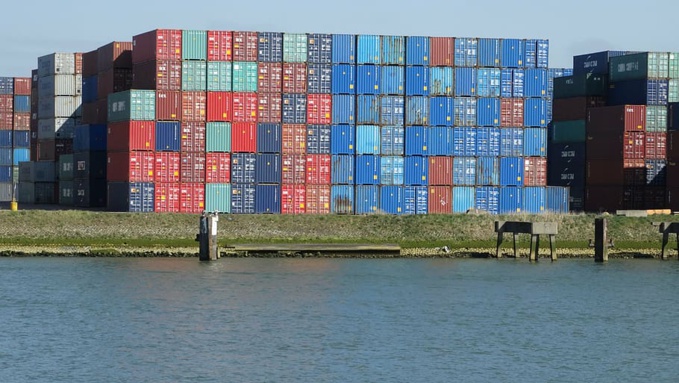The IMF studied the movements of the Baltic Dry Index (BDI), which reflects the average price of shipping on twenty key routes and encompasses 100% of the world's bulk cargo shipments, to keep track of transportation costs.
Transportation cost fluctuations have inflationary impacts that are quantitatively similar to those induced by changes in oil and food prices. Over the course of a year, a 21.8 percent increase in the indicator (one standard deviation of the IMF supply cost) raises inflation by 0.15 percent. The impact of BDI variations on inflation is longer: following a rise in the index, inflationary growth peaks in 10-13 months, but after a spike in oil prices, it peaks in four months; for food commodities, it peaks in seven.
The IMF used extended data for 143 countries and separated the observation time into two intervals: 1990-2005 and 2006-2021 to quantify the impact of a jump in the cost of supplies on inflation. The impact of a transportation cost shock on inflation peaked at 10 months in the first interval and 13 months - in the second. However, between 1990 and 2005, the impact decreased, and by the 18th month was less than half of its peak value, whereas between 2006 and 2021, the impact stayed near to the peak value by the 18th month.
The disparity, according to the IMF, is due to a less accurate early sample assessment. The effect is believed to be linked to countries' increased vulnerability to logistics disruptions as supply chains stretch and globalization increases. This indirectly validates the IMF's finding that nations with a large percentage of imports are more affected by the spike in supplier costs.
The poorest economies and island countries bear the brunt of a jump in supplier costs on consumer prices, whereas wealthier economies have a lesser burden. Inflation targeting and expectation stability also serve to mitigate the impact of rising supply prices on inflation.
source: imf.org
Transportation cost fluctuations have inflationary impacts that are quantitatively similar to those induced by changes in oil and food prices. Over the course of a year, a 21.8 percent increase in the indicator (one standard deviation of the IMF supply cost) raises inflation by 0.15 percent. The impact of BDI variations on inflation is longer: following a rise in the index, inflationary growth peaks in 10-13 months, but after a spike in oil prices, it peaks in four months; for food commodities, it peaks in seven.
The IMF used extended data for 143 countries and separated the observation time into two intervals: 1990-2005 and 2006-2021 to quantify the impact of a jump in the cost of supplies on inflation. The impact of a transportation cost shock on inflation peaked at 10 months in the first interval and 13 months - in the second. However, between 1990 and 2005, the impact decreased, and by the 18th month was less than half of its peak value, whereas between 2006 and 2021, the impact stayed near to the peak value by the 18th month.
The disparity, according to the IMF, is due to a less accurate early sample assessment. The effect is believed to be linked to countries' increased vulnerability to logistics disruptions as supply chains stretch and globalization increases. This indirectly validates the IMF's finding that nations with a large percentage of imports are more affected by the spike in supplier costs.
The poorest economies and island countries bear the brunt of a jump in supplier costs on consumer prices, whereas wealthier economies have a lesser burden. Inflation targeting and expectation stability also serve to mitigate the impact of rising supply prices on inflation.
source: imf.org



















